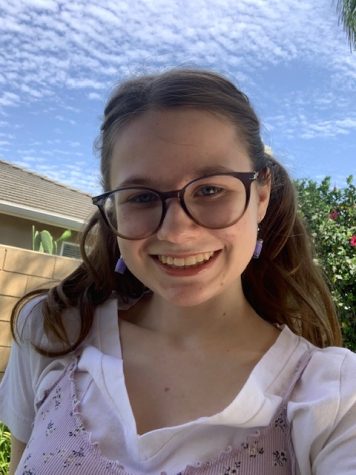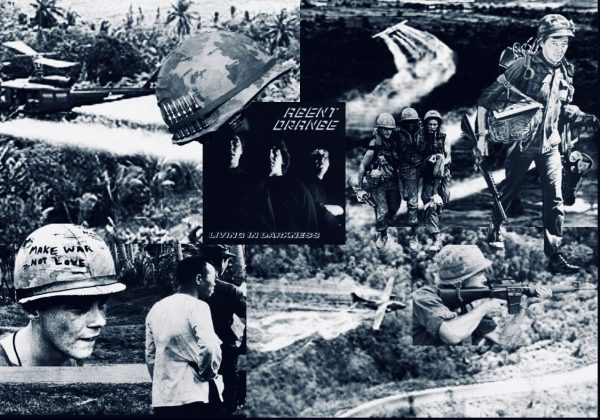Taylor Swift’s Tribute to Her Grandparents in “epiphany” and “marjorie”

Collage of screenshots from the “epiphany” and “marjorie” lyric videos
January 29, 2021
Taylor Swift’s ninth studio album, “evermore”, has been out now for over a month. Whilst it of course garnered lots of attention alongside “folklore”, two songs in particular from the two albums have been overlooked. Those songs are “epiphany” on the folklore album and “marjorie” on the evermore album.
Both of these songs are the 13th track on their respective albums, which is no coincidence. The number 13 has always held a lot of significance for Taylor.
This is for multiple reasons. She was born on December 13th, and turned 13 on Friday the 13th. It took her first album “Taylor Swift” 13 weeks to go gold, and her first song to go number one had a 13 second intro.
13 is also her lucky number. Swift has said that she has been seated in the 13th row, the 13th seat, the 13th section, or row M, which is the 13th letter in the alphabet, every time she has won an award.
So, why would Taylor choose to specifically make the songs “epiphany” and “marjorie” the 13th tracks on two of her albums?
“Epiphany” is about her grandfather, whilst “marjorie” is about her grandmother, so perhaps this was to show how important they were to her.
Swift’s paternal grandfather, Dean Swift, was the inspiration behind “epiphany”. He fought in the Battle of Guadalcanal during World War II.
Hints at war can be found in the opening lyrics “Keep your helmet, keep your life, son” and “Just a flesh wound, here’s your rifle.”
The lyrics regarding Dean’s experience in the war are vague, likely because it was something too personal and too hard to talk about, as referenced in the lyric “Some things you just can’t speak about.”
Fellow Swiftie, Erika Pacheco notes that Taylor constructed these lyrics in a way that “is so haunting and truthful while painting homage to the soldiers who fought in war.”
Another story is told through the song, that of a more modern medical professional dealing with the hardship of death in their field of work. It pays “homage to all the front line workers during the current climate of the world”, as stated by ERHS student and Swift fan, Harshi Kellampalli.
Though it may seem odd to group these together, they may have more in common than you think. People who have fought in wars and people working in the medical field have both seen events occur that are extremely hard to process, events that they may never be able to talk about. Pacheco believes that the “topics coincide with each other very well.”
My interpretation of the song being named “epiphany” is that it encapsulates the longing of these groups of people to make some sense of what they’ve gone through, of the horrible things they have seen transpire. They are dreaming of that “single glimpse of relief” to prove that there is still good out there and that they’ve made a difference.
Kellampalli elaborates that this song not only “brought to light the struggles of soldiers like [Taylor’s] grandfather” but it also “describes the hope and peace and love in a world of chaos.”
Swift’s impeccable ability to portray these feelings despite having never experienced them herself is an ode to her true talent.
The focus of the story being on her grandfather brought a more personal aspect to the song and made it more easy to relate to. While most listeners likely have no experience with wartime, many likely have family members who have either been alive during a time of war or fought in a war themselves.
Overall, this song is a beautiful tribute to both Dean Swift and healthcare workers, especially for what they have been experiencing due to the COVID-19 pandemic.
Kellamapalli believes it “flows well with the others in the album but has a unique perspective and idea behind each verse, which makes it heart-touching and gives us all hope.”
Now, moving onto the song “marjorie” off of the evermore album.
It is not an exaggeration when I say that this is easily one of Taylor’s best, and most heartfelt, songs.
“Marjorie” is a dedication to Swift’s late grandmother, Marjorie Finlay, who passed away in 2003.
Finlay was an opera singer and, according to Taylor, always supported her dreams of singing. In fact, her voice can even be heard in the song on the background vocals when Taylor sings “If I didn’t know better, I’d think you were singing to me now.”

The song begins with a saying, much like the ones adults tell you when you’re young: “Never be so kind, you forget to be clever. Never be so clever, you forget to be kind.”
It’s the kind that would’ve made you groan in exasperation, because what exactly is that supposed to mean grandma?
However, once that beloved person is gone, you wish you would’ve listened a little harder. You’d do anything to hear a piece of their wisdom again, or to hear them say anything at all, really.
This song perfectly portrays the feeling of grief. One minute it is reminiscing on beautiful past memories and it feels like everything might be ok, then something sets you off and all of the pain comes rushing back and catches you off guard.
The more complex emotions related to grief, such as regret, are portrayed in the lyrics “I should’ve asked you questions” and “I should’ve asked you how to be.”
There are things you’d never think to ask someone, until suddenly you’ll never have the chance to ask them anything again. It makes you wonder, do I even know their favorite color? What about their favorite food? Why didn’t I think to care before?
But, the truth is your connection to someone isn’t dependent on how many facts you know about them, or the wisdom they did or didn’t pass on to you. It is defined by your memories together, and though you won’t remember everything, what you do remember are those that are worth remembering; they are the particularly special ones.
The worry that you never truly knew someone arises in a panicky, quick manner after they pass. You were never meant to know everything about a loved one, though. They chose what pieces of themselves to share with you, and that makes those pieces just that much more special.
Another aspect of grief that Taylor encapsulated brilliantly is the clinging to material items in the lyrics “Should’ve kept every grocery store receipt, ‘Cause every scrap of you would be taken from me.”
When someone is physically taken away from you, it is natural to cling to things that remind you of them. Simple items, such as grocery store receipts, that previously had no meaning suddenly become significant. Just the fact that it is related to the one we lost makes it special.
However, the hole left in us by someone important passing away cannot be filled with material objects. It’s not truly the object that you wish was still with you, it is the person.
Overall, this song is both heart wrenching and healing. Pacheco describes it as ” a song that breaks [her] heart”, and continues that she loves how Taylor “expresses the inspiration and wisdom her grandmother has given her.”
Grief is a double-edged sword with both joyous and hard moments, and it never truly goes away. Taylor was able to perfectly illustrate this duplicity, and in doing so revealed a lot of vulnerability.
This type of vulnerability is not easy to share with the whole world, and it is part of that makes her songwriting so personal and beloved by so many people.
If you have not listened to these songs yet, I highly recommend you do. Click here to listen to “epiphany”, and click here to listen to “marjorie”.











